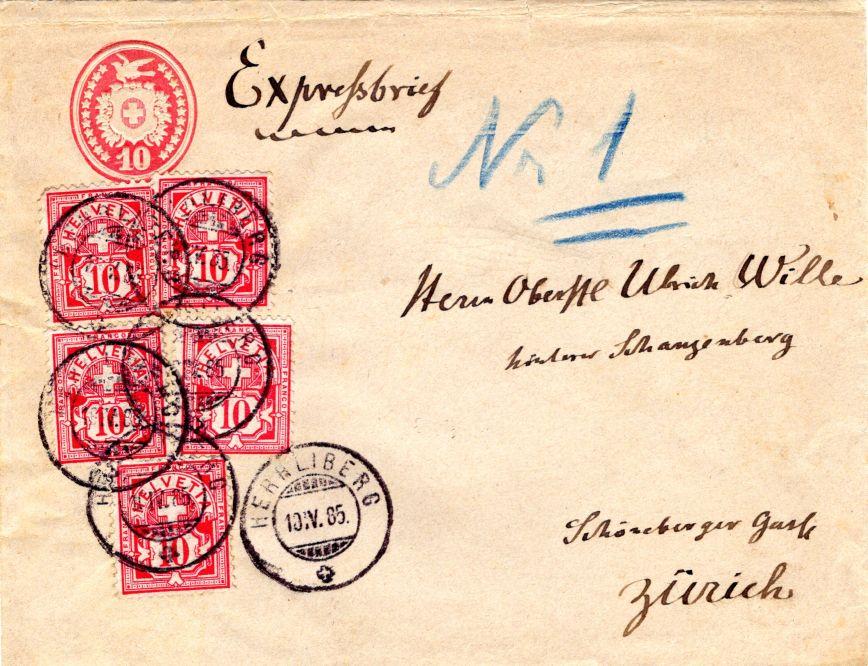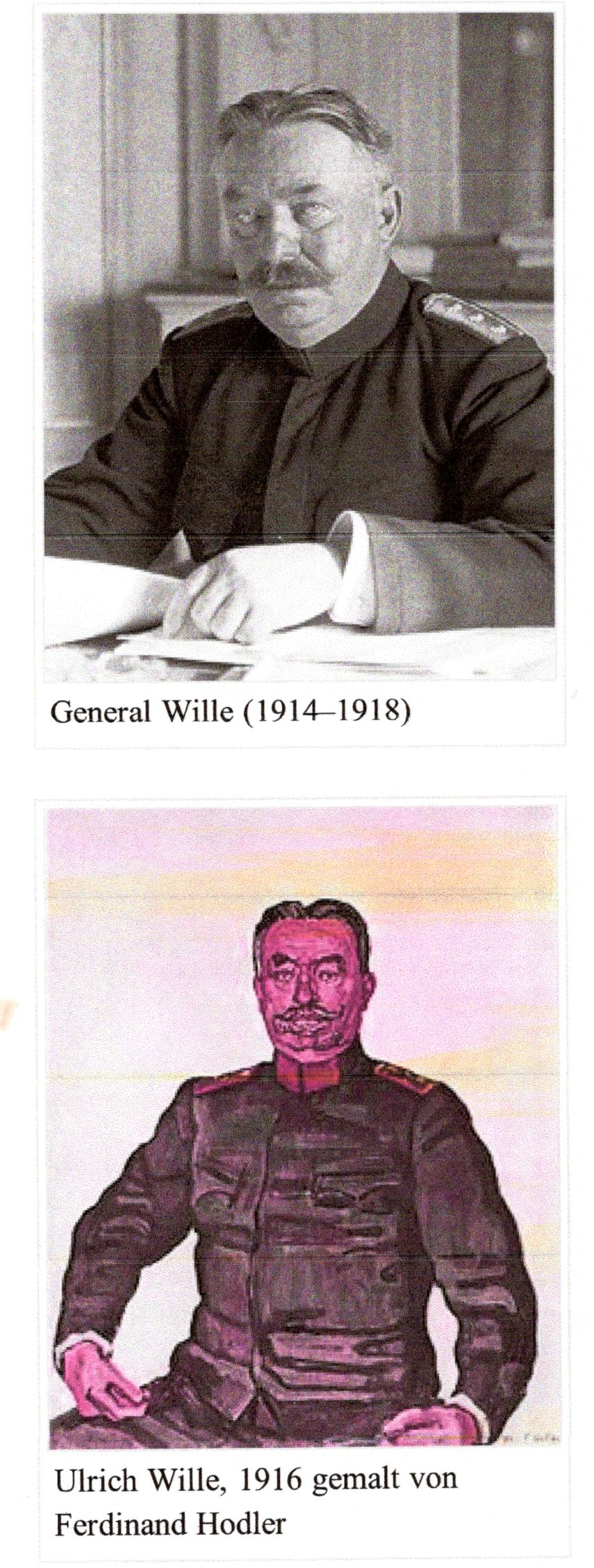de
it
fr
en
General Ulrich Wille, Commander-in-Chief of the Swiss Army during the First World War, had never been very popular in our country and is largely forgotten today, unlike General Henri Guisan.General Ulrich Wille, Commander-in-Chief of the Swiss Army during the First World War, had never been very popular in our country and is largely forgotten today, unlike General Henri Guisan.
Its roots are to be found in La Sagne. A small Jura village in a peaty valley, where the Wille family originated and originally bore the typical Jura name of Vuille.
An ancestor who was a shoemaker probably emigrated to Germany in the 18th century for economic reasons, where the difficult to pronounce Neuchâtel name was changed to Wille.
The later general was born in Hamburg in the revolutionary year 1848. Three years later the family moved to Zurich and acquired an estate in Feldmeilen, which is still owned by the family today.
After the Franco-Prussian War in 1870/71 Ulrich Wille joined the instruction corps, where he rose to the rank of chief of arms of the cavalry. In quick succession he was promoted: in 1874 to Captain, in 1877 to Major and in 1881 to Lieutenant Colonel.
On 8 September 1883 he was appointed Chief Instructor of the Cavalry by the Federal Council and promoted to Colonel in 1885, from where the pictured letter also corresponds.

He advocated a consistent modernisation of the Swiss Army along Prussian lines, and he did so with drill and discipline. However, this new direction met with considerable resistance. In 1896 he was dropped by the Federal Council and had to leave.
He became unemployed and afterwards worked as a military writer. Finally he was appointed professor at the ETH Zurich, where he taught about war history, army organisation, tactics and military education. As a troop leader he was considered exemplary, especially with regard to his manoeuvre planning and large-scale military exercises.
On August 3, 1914, after the outbreak of World War I, he was elected Commander-in-Chief of the Swiss Army at the age of 66, at the suggestion of the Federal Council and against the initial will of the Parliament.
Wille was married to Clara Gräfin von Bismarck (1851-1946), the daughter of Friedrich Wilhelm Graf von Bismarck, and had two daughters and three sons.
In 1916 he was even portrayed as a general by Ferdinand Hodler.

Ulrich Wille died on 31 January 1925 in Meilen (ZH). One of Switzerland's largest weapon sites in Bure (Jura) was named after him.
$comments